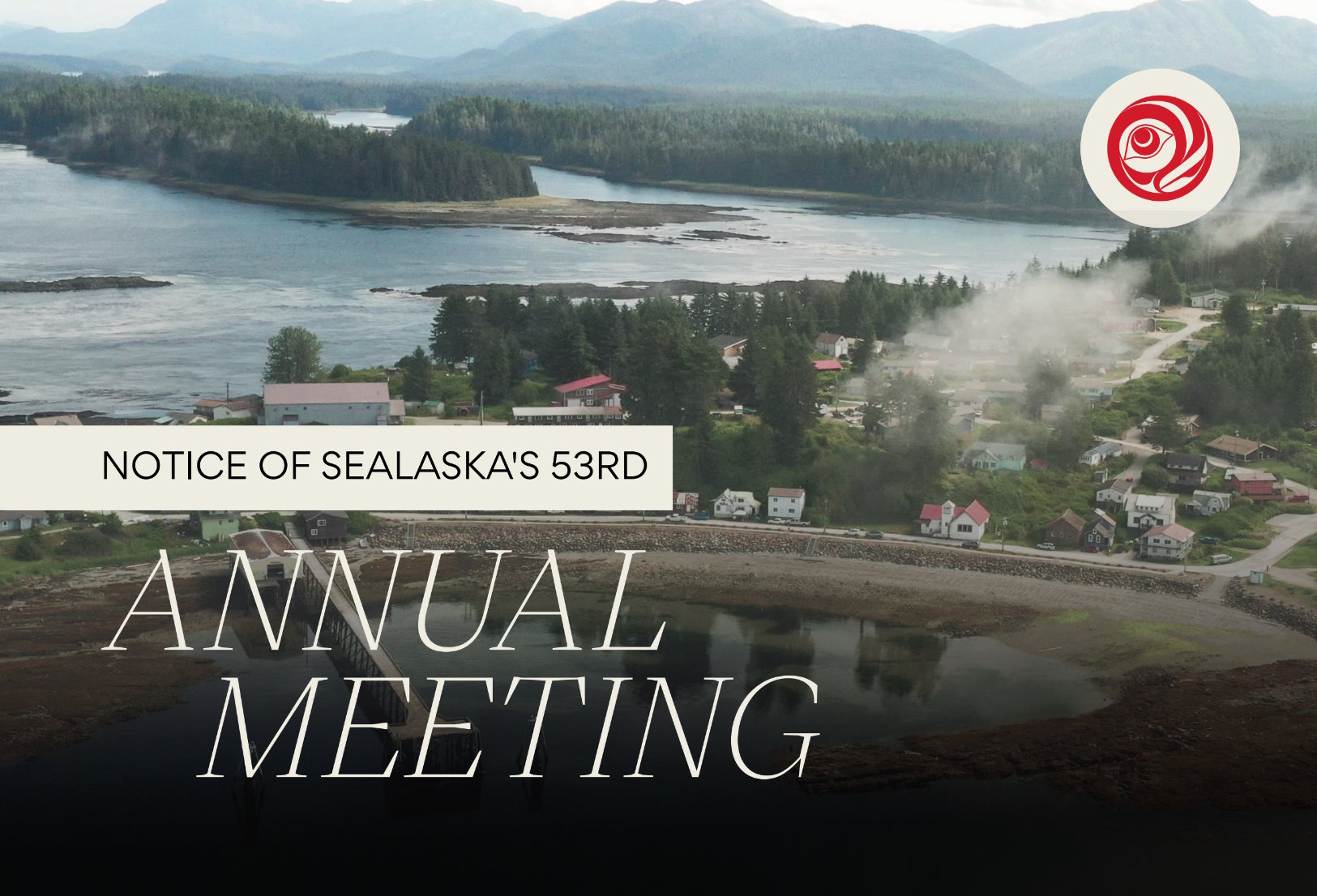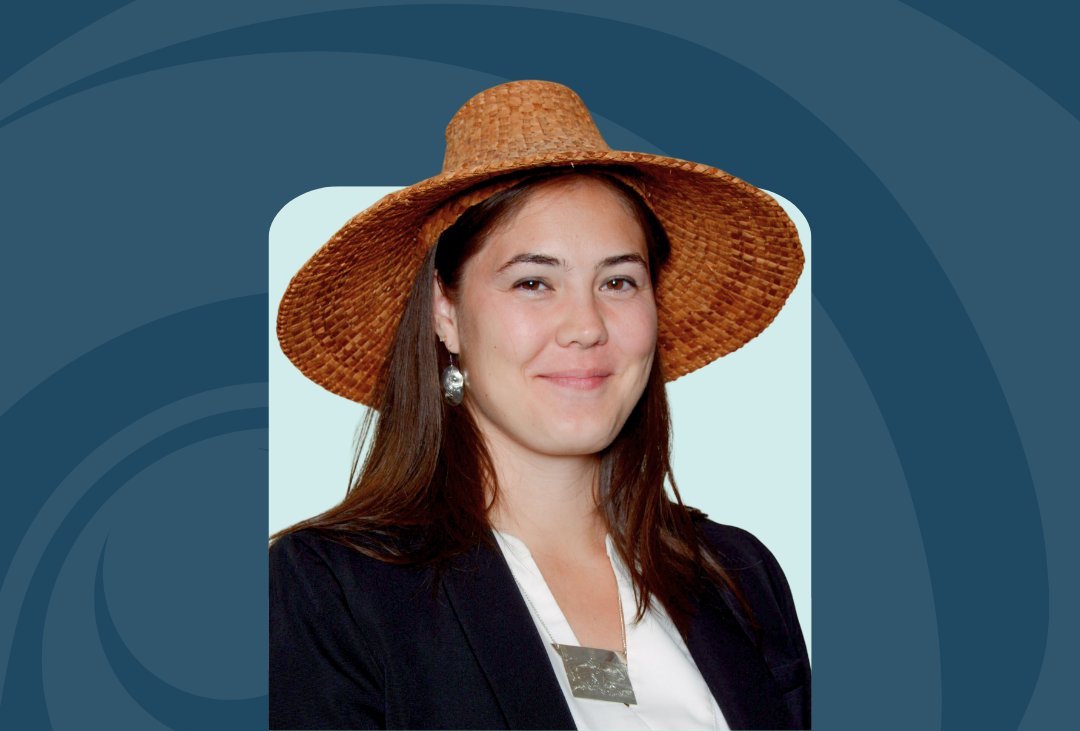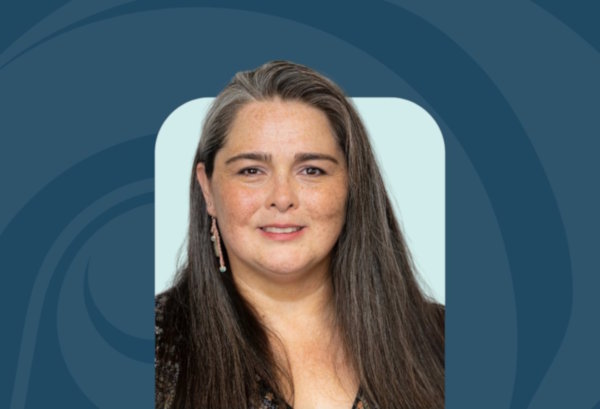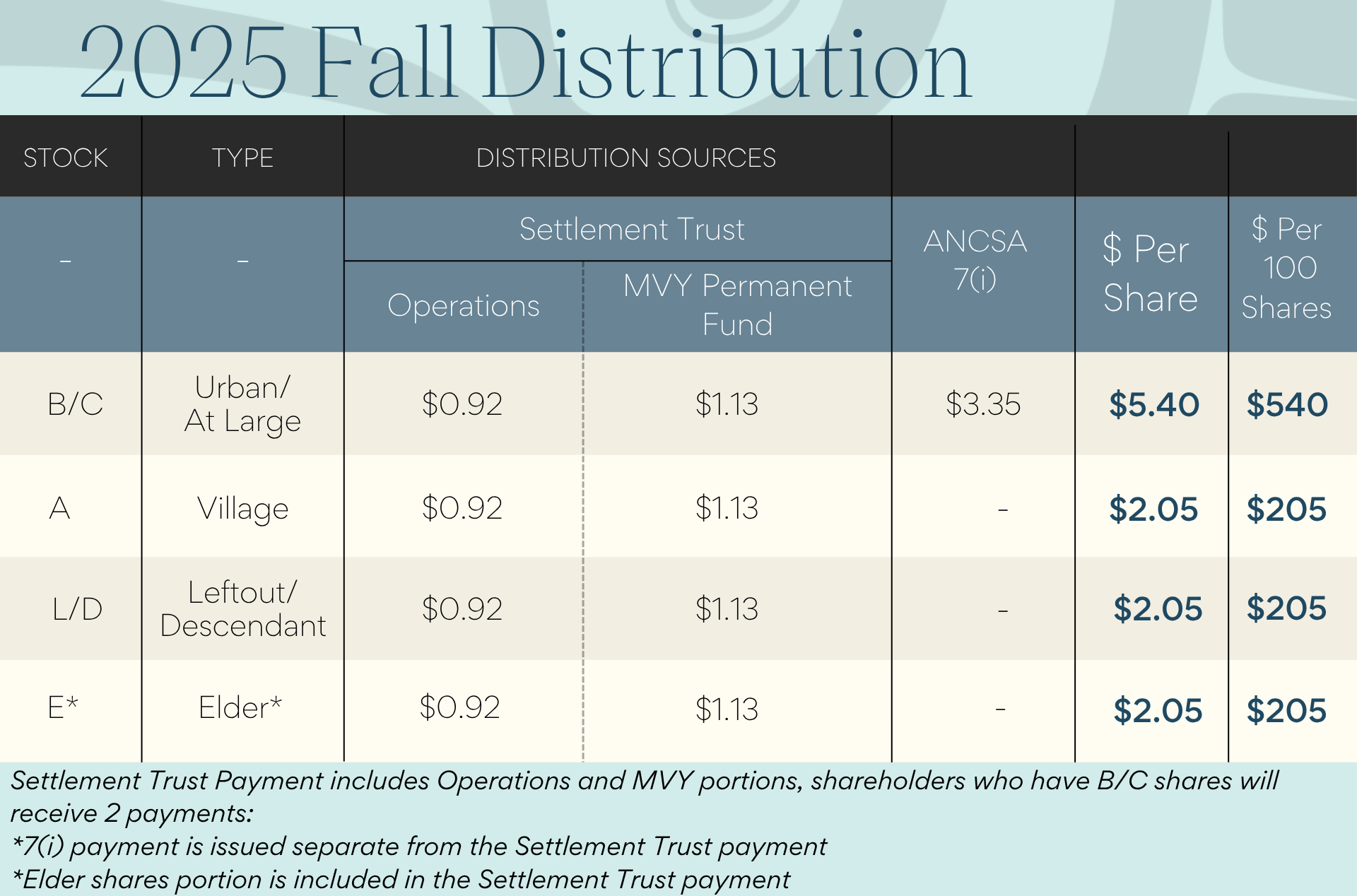Chief Science Officer Enriches Ocean-Health Business with Experience & Passion
Monday, April 19, 2021

The next time you find yourself on a beach, grab a handful of sand and look at it closely, suggests oceanographer Jesse McNinch. That sand is a detective story, he says, encoding the tales of millions of years of natural history.
“Geology is like the earth’s stenographer,” Jesse says. “It’s always recording everything that’s happening. The exciting part is being able to read and interpret it.”
After more than three decades of solving ocean-related problems for private industry and the federal government and inspiring college students to love ocean sciences, Jesse is bringing deep academic and field expertise to Sealaska as its new Chief Science Officer. This new role is all about bringing together various parts of the organization to innovate, develop ideas and find new ways to work together to foster healthy oceans and address the effects of global warming.
One current example is a collaboration with Sealaska Environmental Services (SES), MBS and Cognitell that uses sensors and other data sources to develop a flood-warning system – including detailed maps – that could help countless coastal communities. Global warming-fueled sea-level rise is leading to more frequent flooding due to local weather events, and if leaders in coastal towns had precise information about when and where floods were likely to happen, they could close roads early and mitigate damage. Cognitell’s data intelligence, MBS’ cloud and geospatial capabilities and SES’ command of sensors build on Jesse’s extensive coastal expertise to address this issue.
“What’s important about bringing in someone like Jesse is his deep domain knowledge,” says Rich Mainwaring, general manager overseeing MBS and Cognitell. “He’s the first to identify compelling problems that we’re suited to solve. We need to get deeply into the domain to understand true market needs.”
If a system like this one for monitoring and analysis turns out to be a viable solution for coastal communities, it will create opportunities to bring in other Sealaska functions, such as Gregg Drilling and CS Marine, to provide construction-related coastal improvements that prevent harmful flooding from happening at all.
“The real key there is to leverage the company’s different capabilities to create a unique and powerful solution,” Rich says. “That’s what’s great about what we have at Sealaska, and why we’ve invested in marine construction companies like CS Marine. If we get people thinking about all the capabilities in this company, we’ll realize we don’t need to hire outside firms to solve problems.”
In the spirit of bringing people together across the Sealaska, Jesse is introducing a series of monthly seminars on science and engineering, starting April 30. The plan is to “talk about cool science,” he says. The first seminar, focused on coastal flood forecasting, will step through the range of challenges facing many coastal communities and habitats around the world in the face of rising sea levels.
“The seminar format will remain open to all levels of idea-maturity, and I hope that these seminars will spur new thoughts and interaction across Sealaska,” Jesse says. “The only ground rules are that the topic needs to be relevant to Sealaska and our twin goals of economic prosperity and environmental protection, and that the ideas remain proprietary to Sealaska.”
The seminars will also be a way to deepen people’s exposure to the beauty and magic of the ocean. It’s heartwarming to connect people with that, Jesse says. It might even be life-changing.
Growing up in coastal South Carolina put Jesse in close touch with the sea at a young age and forged his early passion for the ocean. Fishing, being alone on the water and experiencing the awe and fascination of ocean life helped him through difficult times, he says, noting that “having that passion was like a life ring.”
By the second grade, Jesse knew he wanted to work somehow with the sea.
“Looking back, I realize how lucky I was to have a passion I recognized early on,” he says. “I never doubted what I wanted to do. I look back now and realize that was a real gift.”
Jesse describes a research project he led as a doctoral student in the Carolina capes. He was often the only human on a small boat surrounded by sea life – including sharks that were drawn to the instruments he was using on the seabed.
“I’d be surrounded by pods of whales,” he says. “Once a manta ray leapt so close to the boat the spray soaked my face. It was nothing but wonderful affirmation this was what I wanted to do with my life.”

Jesse holds masters and doctoral degrees in marine sciences from the University of North Carolina, Chapel Hill. He has built a career on developing novel observational sensors and data-collecting techniques, along with specialized processing algorithms, that operate successfully in challenging ocean environments and contribute solutions to a host of problems. He has helped win tens of millions of dollars in grants that have funded a range of projects and enabled him to produce peer-reviewed studies on topics from cyclone frequency to shoreline erosion to marine archeology. He is an experienced diver, licensed U.S. Coast Guard captain and avid sailor.
Sealaska’s Alaska Native community ownership and its focus on combining meaningful environmental work with business viability drew Jesse to the new role. The company’s many strengths, including geotechnical and drilling capabilities and extensive water-cleanup experience, open up countless opportunities to make a positive difference, he says, adding, “It’s a cool thing to be a part of.”
From his home base in North Carolina, Jesse hopes to bring academic rigor and on-the-ground experience to helping elevate the science and engineering that Sealaska is already doing.
“I want to help guide us into areas that fit our identity as a business focused on doing something meaningful,” he says.
Latest News
Notice of Sealaska's 53rd Annual Meeting of Shareholders
Pinned - Posted 2/12/2026The 2026 Sealaska Annual Meeting of Shareholders will be held on Saturday, June 27, in Angoon, Alaska. This year’s meeting will take place at the Angoon Elementary Gym, located at 500 Big Dog Salmon Road, Angoon, AK 99820.
Sealaska Welcomes Madeline Soboleff Levy
Posted 2/7/2026Sealaska welcomes Madeline Soboleff Levy as our new Vice President of Policy and Corporate Affairs.
Online Notary Service for Stock Wills
Posted 1/28/2026Sealaska is pleased to welcome Heather Shá xat k’ei Gurko
Posted 12/17/2025Sealaska is pleased to welcome Heather Shá xat k’ei Gurko as our new Director of Shareholder Communications.














